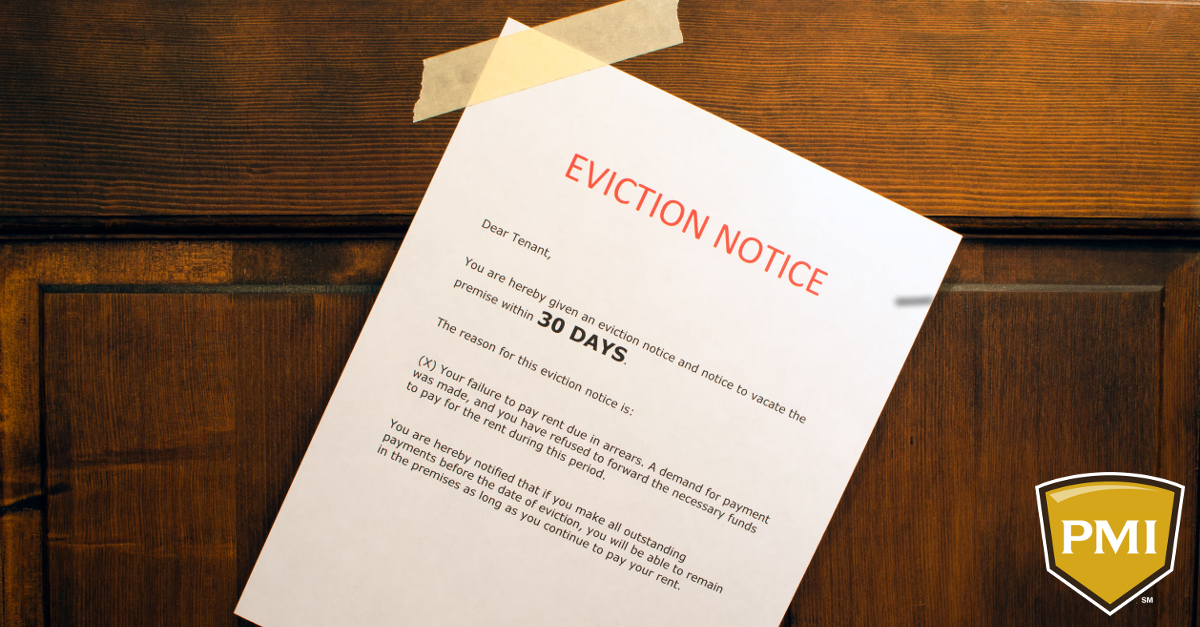
January 9th, 2018
By Jim Dangerfield, General Support
Evictions are one of the most challenging events for both landlords and tenants, they are emotionally draining and can be costly for everyone involved. Proactive property managers will want to ask themselves “How can I avoid evicting anyone?” Here are a few of our top tips for making sure you never have to worry about pushing your tenants out the door.
Set Timely Payments for Rent
The easiest way to avoid evictions is to make sure tenants pay their rent on time, but for many property managers this is easier said than done. Handling rent cash flow well begins even before the lease is signed. You need to prequalify each tenant not only with credit score but also background checks, so you know who you are dealing with. Be sure to check personal references, verify employment, and call previous landlords.
Once you reach the lease signing stage, explain the expectations outlined in the lease clearly and make sure your tenants know what they’re getting into. Confirm that your tenants understand that:
- Rent is due on the first of each month.
- Rent is past due after the fifth of each month.
- Rent is paid digitally through their tenant portal or in person as a cashier’s check or money order. This avoids confusion over checks getting lost or delayed in the mail.
- Only people on the lease are allowed to reside in the property.
Before the lease is finalized, you should also make sure to:
- Explain your pet policy.
- Explain the tenant’s responsibility for maintaining the property.
- Explain your smoking policy.
- Explain what will happen if the lease terms are violated.
- Collect the security deposit and explain how and when it will be returned.
Proactive Communication
Property management starts before the lease is signed and the most effective property managers make sure lines of communication are open after the tenants move in.
- Make sure tenants know how to report and monitor maintenance issues.
- Provide information through monthly newsletter or email.
- Provide emergencies numbers and contact information again and again and again.
- Tell tenants to notify you if the rent is going to be late so you can help them work through the temporary delay.
Inform tenants at lease signing and then at least 3 days advance when you will be making regular exterior and interior inspections to ensure the property is being maintained. Make sure they know that you will install new air filters for the furnace, replace batteries for the smoke detectors, and fulfill your other established tasks as a property manager. This way they will know which maintenance responsibilities are yours and which belong to them.
When Things Go Bad with Tenants
If your relationship with a tenant is progressing poorly, explain the ramifications of evictions clearly so that they are informed of the possibilities at hand and inspired to renew their efforts to cooperate.
- Eviction Court -- This can be an embarrassing experience and a matter of permanent public record.
- Dispossession -- Where tenants will be forcibly removed from the premises by the Sheriff. This can be an even more embarrassing experience than eviction court and is also a matter of permanent public record.
- Judgment(s) -- Eviction may severely damage a tenant’s credit rating, resulting in:
- A collection process until their debt is paid in full.
- Possible seizure of assets they own, including bank accounts.
- Garnishment of wages.
- Notification of credit bureaus causing inability to qualify for lines of credit, including credit cards, car loans, and mortgages.
- Notification of National Tenant Reporting Services, causing inability to qualify for rental housing (most quality rentals require credit and tenant screening).
Make sure you and your tenants have already agreed on the justifiable causes for eviction, so your eviction efforts will hold up under scrutiny. We recommend those causes be:
- Nonpayment of Rent.
- Lease Violations such as:
- Property Damage.
- Illegal or Drug Related Activity.
- Expiration of Lease.
Some tenants will push their limits to see what they can get away with. Most tenants mean well, but some are simply undisciplined with their finances and bad at paying rent. As a property manager, you want to make sure your clients trust you and see you as an ally rather than an enemy. They need to know that you care about them and want to have open communication with them about anything they might need. If you are proactive and use our steps to build a positive, helpful relationship with tenants, most evictions can be avoided.










